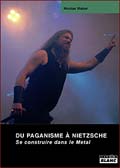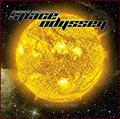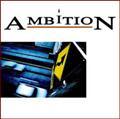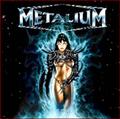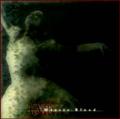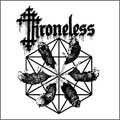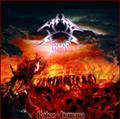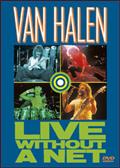DIABOLO SWING ORCHESTRA (se) - Daniel Håkansson (Déc-2007/VF-EV)

Dans un panorama musical ou le formatage est roi (jetez donc un coup d’œil sur MTV ou MCM, et vous verrez…), DIABLO SWING ORCHESTRA fait figure d’Ovni, de mutant, et semble étrangement décalé. Il n’en fallait pas plus à Metal-Impact pour essayer d’en savoir plus sur ce groupe responsable d’un des albums les plus jouissif du début du 21ème siècle, The Butcher’s Ballroom, creuset intarissable d’idées toutes plus alléchantes les unes que les autres. Valse Metal ? Progressive Menuet ? Qu’importe, Daniel à sa petite idée sur la question…
Line-up : Annlouice Loegdlund (Chant), Daniel Håkansson (Guitare, Chant), Andy Johansson (Basse), Andreas Halvardsson (Batterie), Johannes Bergion (Cello), Pontus Mantefors (Guitars & FX)
Discographie : The Butcher's Ballroom (Album - 2007)
Metal-Impact. Le concept de création de DSO est extraordinaire. Est il venu avant ou après le processus de composition ?
Daniel Håkansson. Avant, bien sur. Cela nous laisse un champ d’action très large pour la composition. C’est comme un fil rouge qui rend notre musique plus cohérente.
MI. Le concept est il aussi important que la musique ?
Daniel. Pas vraiment. La musique vient d’abord, mais ainsi, nous avons quelque chose à quoi la rattacher. Si nous jouions ce style en jeans et baskets, ça ne fonctionnerait pas. On veut offrir quelque chose de différent au public. Le coté visuel est plus un décor, et je ne pourrais pas dire que les deux sont placés au même niveau. Mais les groupes qui négligent l’aspect visuel ratent une opportunité d’offrir à leur public un petit plus.
MI. Peux tu m’en dire plus sur la création de The Bucher's Ballroom ?
Daniel. Il a été enregistré au studio Underground à Väasterås, en Suède et produit pas Pelle Saether, qui a déjà bossé avec des groupes comme DRACOINIAN, DISTORTED et THE HIVES. Le processus a été assez long, ce qui a plutôt été une bonne chose dans le sens ou nous avons pu corriger quelques erreurs, ou rectifier des choses qui ne sonnaient pas comme nous le souhaitions. On a beaucoup discuté en studio pour savoir de quelle façon les chansons devaient sonner et notre producteur a accompli des miracles pour satisfaire tout le monde. De plus, nous n’avions pas de base pour enregistrer les pistes d’Annlouice, alors nous avons fait beaucoup d’essais pour bien mixer sa voix avec la musique, pour qu’elle ne soit ni trop en retrait, ni trop en avant. On ne savait même pas en entrant en studio si nous allions inclure « Ballrog Boogie » sur l’album, mais tous les titres, incluant celui-ci, ont vraiment trouvé leur forme définitive.
MI. J’ai été très impressionné quand j’ai écouté l’album, on dirait que votre imagination n’a pas de limites. Dans quel état d’esprit êtes vous lorsque vous composez un morceau ?
Daniel. Ca commence souvent avec un rythme de base, et une idée générale. La plupart des morceaux de l’album ont été composés autour d’une ossature grosse caisse/caisse claire. Je travaille essentiellement d’une manière rythmique. J’essaie ensuite de trouver une mélodie qui colle aux riffs. Quand les couplets et le refrain sont prêts, je cherche de quoi enrichir la chanson. J’essaie de trouver une influence extérieure pour pouvoir capturer l’essence même de différents styles.
MI. Cet album a-t-il été pensé comme un concept dès le départ ?
Daniel. Oui, nous voulions que les auditeurs perçoivent cet album comme une performance. Malheureusement, nous avons manqué de temps pour explorer plus de possibilités. Je pense que nous réglerons ce problème sur le prochain album.
MI. La voix d’Annlouice est incroyable. N’est ce pas stimulant de posséder une telle chanteuse au sein du groupe ?
Daniel. C’est certain, et nous n’avons encore exploité qu’une infime partie de ses capacités. Sur le prochain album, les arrangements mettront encore plus sa voix en valeur. C’est une chanteuse d’opéra professionnelle ici en Suède, ce qui fait qu’elle connaît parfaitement l’étendue de sa voix. En concert, nous savons parfaitement qu’elle ne sera jamais à coté de la plaque !
MI. D’ailleurs, quelle serait la définition parfaite de votre style ?
Daniel. Du Riot-Opéra ! C’est un pote qui a trouvé ce nom, et je trouve qu’il définit à merveille notre univers !
MI. Comment réagit le public à vos concerts ?
Daniel. Plutôt bien généralement. Il y a toujours des sceptiques au début, mais nous nous arrangeons pour les convaincre ! Les gens trouvent généralement notre son live plus dur que sur l’album, ce qui est logique puisque nous n’utilisons pas de bandes.
MI. Vous avez gagné un Metalstrom Award pour votre album. Cette récompense était elle importante à vos yeux ?
Daniel. Nous avons été très surpris par cette récompense. Mais elle nous a permis de nous faire un nom. Cela dit avec le style de musique que nous pratiquons, nous savons pertinemment que nous n’allons pas gagner beaucoup de prix, ce qui n’est pas notre but de toute façon.
MI. Pratiquement toutes les critiques de The Butcher’s Ballroom sont dithyrambiques. Cela va-t-il constituer une pression pour vous au moment d’enregistrer la suite ?
Daniel. Nous avons entière confiance dans notre capacité à faire mieux pour ce second album. Il n’y a pas de pression particulière donc. Attention, ce n’est que mon avis, n’y voyez pas une quelconque prétention, de plus nous nous mettons nous même la pression !
MI. Imagine que Dieu te permette de créer tes conditions idéales pour un concert ?
Daniel. Un bordel total avec le public qui casse tout après le dernier morceau. Mais je ne suis pas sur qu’on trouve beaucoup de salles qui acceptent cela !
MI. As-tu un message pour les lecteurs de Metal-Impact ?
Daniel. On espère vous voir en concert et n’hésitez pas à intervenir sur notre forum.
==================== ENGLISH VERSION ====================
Metal-Impact. The story behind the creation of DSO is amazingly original. Did it come before or after the process of composition?
Daniel Håkansson. Before the band came together naturally. The story provides us with a nice frame of inspiration when composing new songs. It helps creating a red line within our work and makes the music more coherent.
MI. Do you think that the concept behind the band is as important as the music itself?
Daniel. Well, not really. The music always comes first but to have a visual concept to back the music up always help. When playing this kind of music it wouldn't really work to show up in jeans and t-shirt and try to put on a show. We want the audience to see something extra as well. The visuals are important as I said as a framework for the music but I wouldn't go as far as saying they are equally important. Bands who neglect the visual aspect however miss out on an opportunity to give their audience something extra.
MI. Tell us more about the creation of The Butcher’s Ballroom?
Daniel. It was recorded in studio Underground in Väasterås, Sweden and produced by Pelle Saether who previously has worked with bands such as Dracoinian, Distorted and The Hives. The process of recording was pretty long with many pauses which was good so we had the time to correct some things that didn't turn out the way they were planned.
There were a lot of discussions in the studio to find a sound that would suit the songs and our producer did perform some small miracles to make everybody in the band happy with the results. Since we didn't really have other recordings to use as a reference it was a lot of trial and error to make Annlouice's vocals with the music and not taking up to much space frequency wise or sounding to weak in the mix.
We weren’t even sure if we would include "Balrog Boogie" on the album when we entered the studio but a lot of the songs including that once really found their final form in there.
MI. I was personally very impressed when I listened to your album. There seems to be no limit to your imagination. What is your state of mind when you’re composing a new song?
Daniel. Well, it normally starts with a rhythmic idea and a concept of what kind of song we want to write. Most songs on "the butcher's ballroom" are composed around how the kick and snare work together. I often come up with ideas when listening for rhythmical motifs. That's how the basic riffs for the songs are composed, I then try to come up with a melody that fits the riffs. When the verses and refrain are done I try to find some more interesting flavours to add to the mix. I usually also use a lot of reference listening when composing to capture the essences of different genres that can be used in the songwriting.
MI. Was this album thought as a concept from the beginning?
Daniel. Yes, we wanted it to be perceived as a performance. We wanted to add more features that could add to the feel of hearing a show but time constrains prevented us from exploring the possibility fully on this album. We will probably explore it more on upcoming albums.
MI. The voice of Annlouice is awesome. Is it stimulating to know that your lead singer can sing almost everything?
Daniel. Yes, and we feel that we have only used a small percentage of her abilities on this alum. The arrangements for the next album will support her voice even better. Since she works as a professional opera singer here in Sweden she knows her voice very well. And when it comes to live performances as long she can hear herself we never have to worry about her singing out of pitch.
MI. By the way, what would be the perfect definition of your music?
Daniel. Riot-opera! A friend of us came up with the label and we grew kind of fond of it. It captivates the overall feeling of the music.
MI. What are generally the reactions of the audience when you’re playing live?
Daniel. So far the reactions have been really good. In the beginning of the shows there have always been some people being sceptical but so far we've managed to win them over. The general comment we've got is that the music come off as much rawer than on the album since we don't use any backing tracks but that it show as different element to the music.
MI. You won a Metalstorm award for your album. Is it important for you?
Daniel. We were very surprised and happy about the award and it certainly help to get our music and name across. We never thought that this kind of the music would give us a lot of awards anyway. So it's not really a goal for us to.
MI. Almost all the reviews of TBB are positive, if not all. Will it be a pressure for you, when you’ll have to compose the next album?
Daniel. We have already come quite far in the composition process for the next album. We don't really feel any pressure since we are quite confident that we will able to top The Butcher's Ballroom with the upcoming album. One has to remember that it's only one person's opinion and do not take it too seriously, we put most pressure on ourselves anyway!
MI. Just imagine God gives you the ability to create the perfect set and moment for a gig. What could it be?
Daniel. Total mayhem with the audience on stage trashing the place after the last song. Not sure that many places would like to have us then.
MI. Do you have a message for all metal-impact readers?
Daniel. Hopefully we'll see you on tour and join our forum if you have any further questions. Cheers!
Ajouté : Dimanche 18 Mai 2008
Intervieweur : Mortne2001
Lien en relation: Diabolo Swing Orchestra Website
Hits: 19933
|



